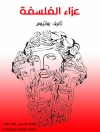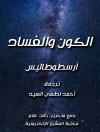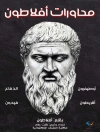In ’The Lives and Theories of Eminent Philosophers, ’ Diogenes Laertius meticulously compiles biographies and doctrines of ancient philosophers, offering invaluable insight into the intellectual landscape of the Hellenistic period. The text is characterized by its engaging narrative style, intertwining anecdotes with philosophical exposition, revealing not just the thoughts of revered figures like Socrates and Epicurus, but also their personal lives, quirks, and legacies. Laertius operates within a context of philosophical historiography, creating a comprehensive yet accessible reference that blends historical accuracy with a flair for storytelling. Diogenes Laertius, a Greco-Roman philosopher himself, draws upon numerous earlier sources, likely inspired by a desire to preserve the ephemeral thoughts of great minds for posterity. His background in philosophy and interest in the nature of wisdom lend authenticity to his portrayal of the thinkers, contextualizing their ideas within the broader philosophical discourse of his time. The work reflects not only Laertius’s intellectual curiosity but also his ambition to provide a lasting tribute to the legacies of these philosophers. This remarkable compilation is a treasure trove for both scholars and general readers alike, inviting them to explore the intricacies of philosophical thought through the lives that shaped it. Laertius’s unique blend of biography and philosophy captivates, making it an essential addition to the library of anyone interested in the roots of Western thought.
Om författaren
Diogenes Laertius was a biographer of the Greek philosophers, believed to have lived in the early 3rd century AD, though his exact lifespan remains unclear. An enigmatic figure, Diogenes Laertius penned one of the most influential works concerning the lives and teachings of the ancient philosophers, titled ’The Lives and Theories of Eminent Philosophers’ (also known simply as ’Lives of the Eminent Philosophers’). This compendium is a principal source for the history of Greek philosophy, invaluable for its plentiful, albeit at times inconsistent, accounts of the lives, philosophies, and sayings of eminent philosophers from the pre-Socratics to the Hellenistic period. The work is organized according to the philosophical schools, rather than chronology, and provides a unique blend of biography, doxography, and anecdote — though the veracity of some of the more anecdotal content has been the subject of scholarly debate. Nevertheless, Diogenes Laertius’ contribution to the preservation of philosophical thought is undisputed, as his accounts often include references to otherwise lost works and traditions. His style is considered more colloquial and less formalistic than typical of scholarly works of his time, which helps illuminate the human aspects of these larger-than-life philosophical figures for posterity.












